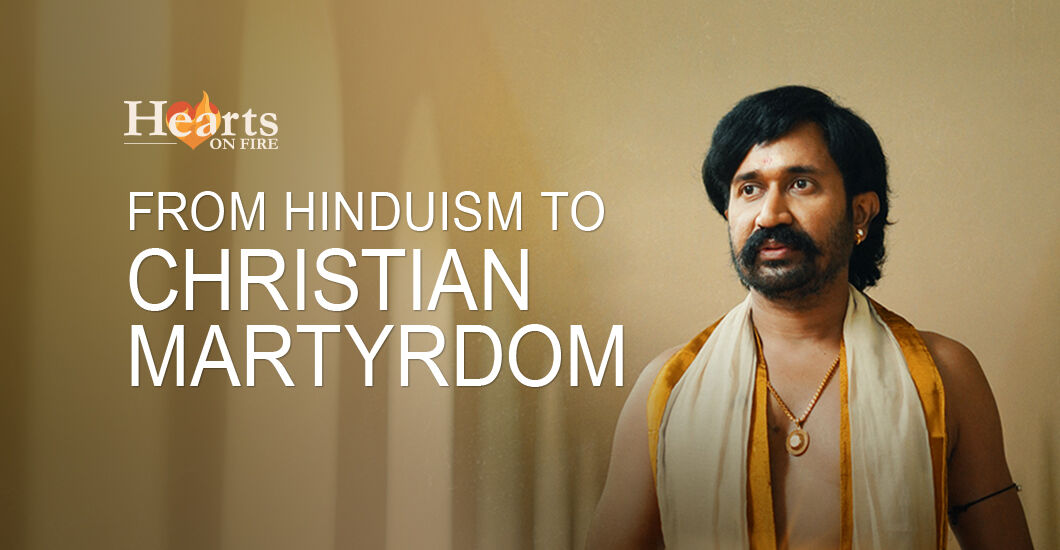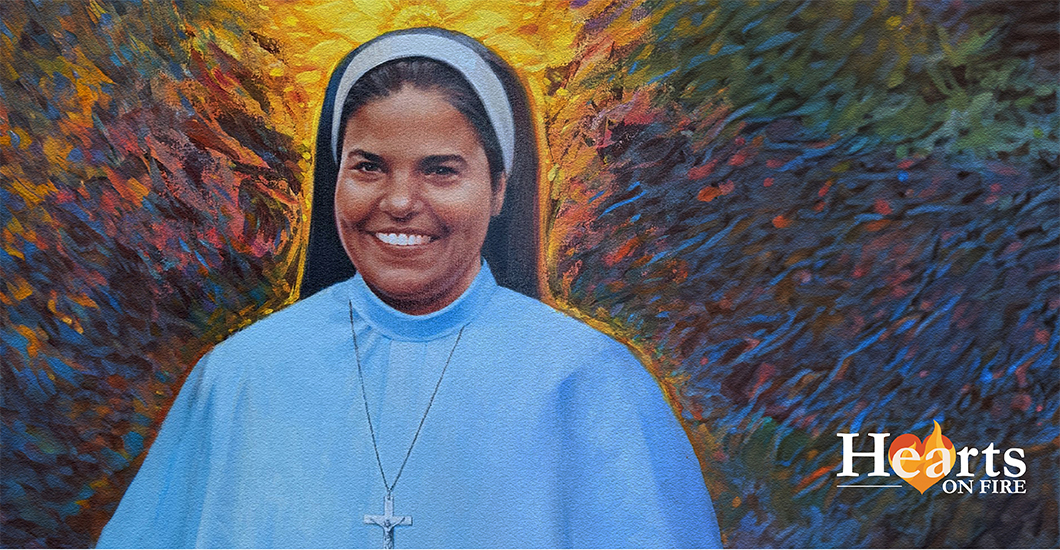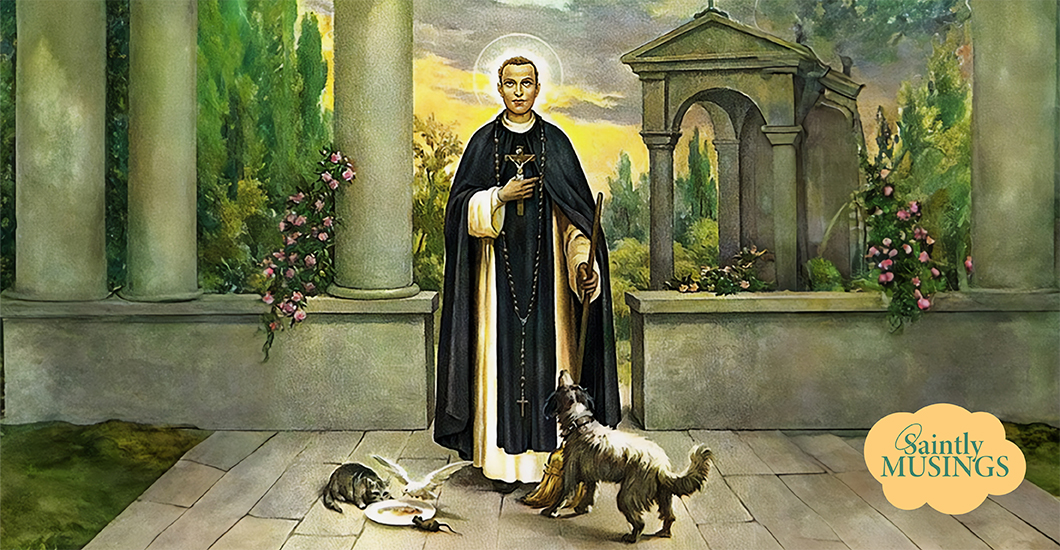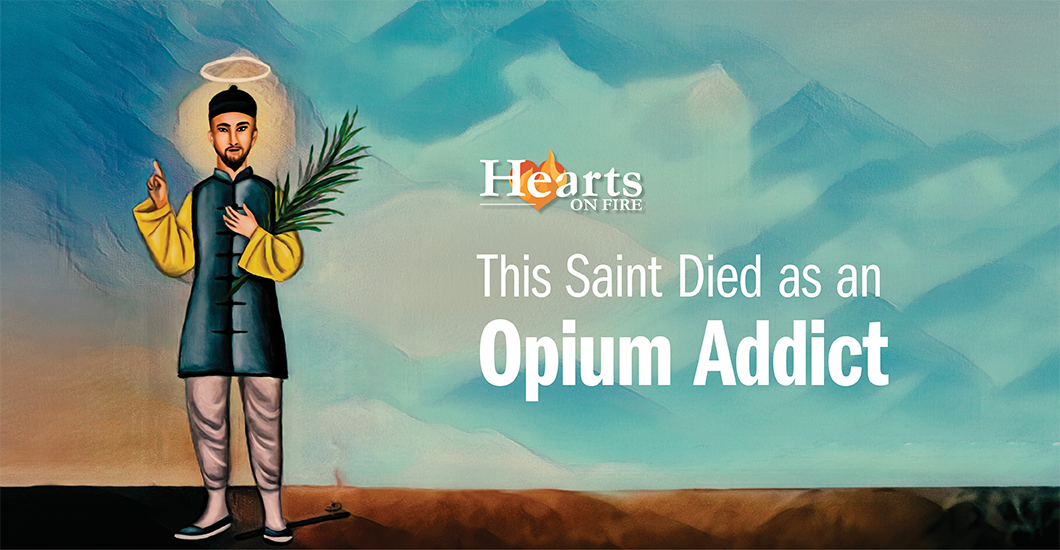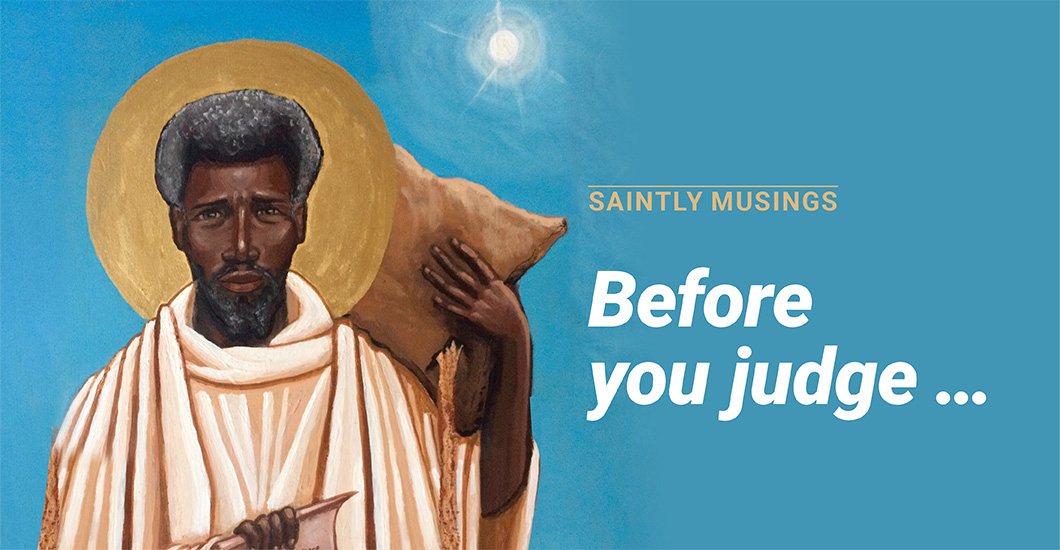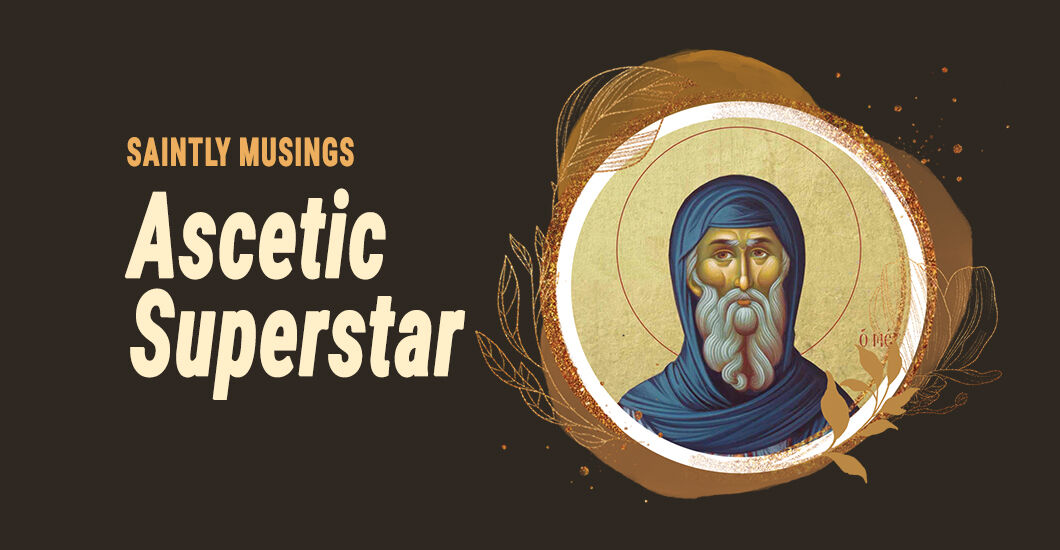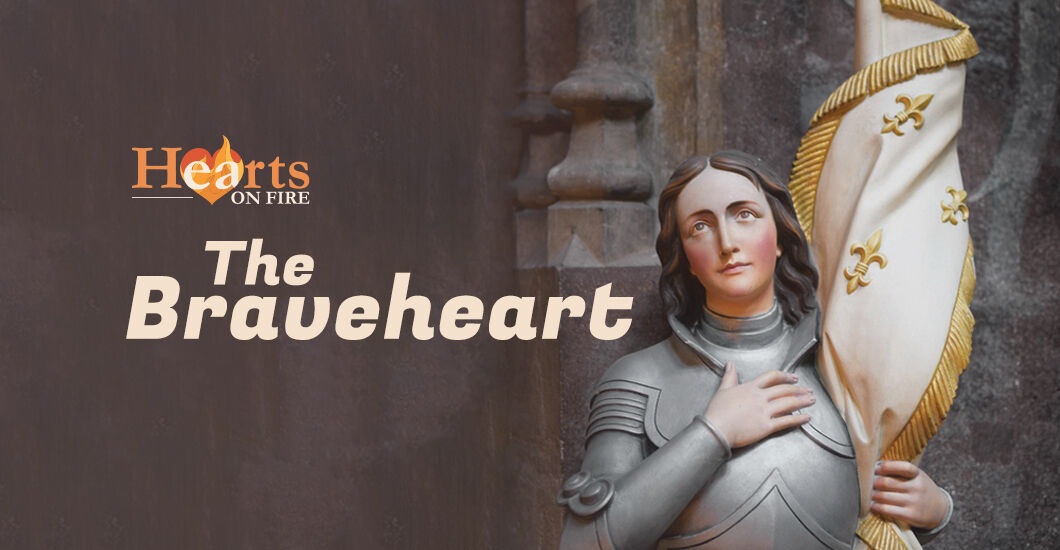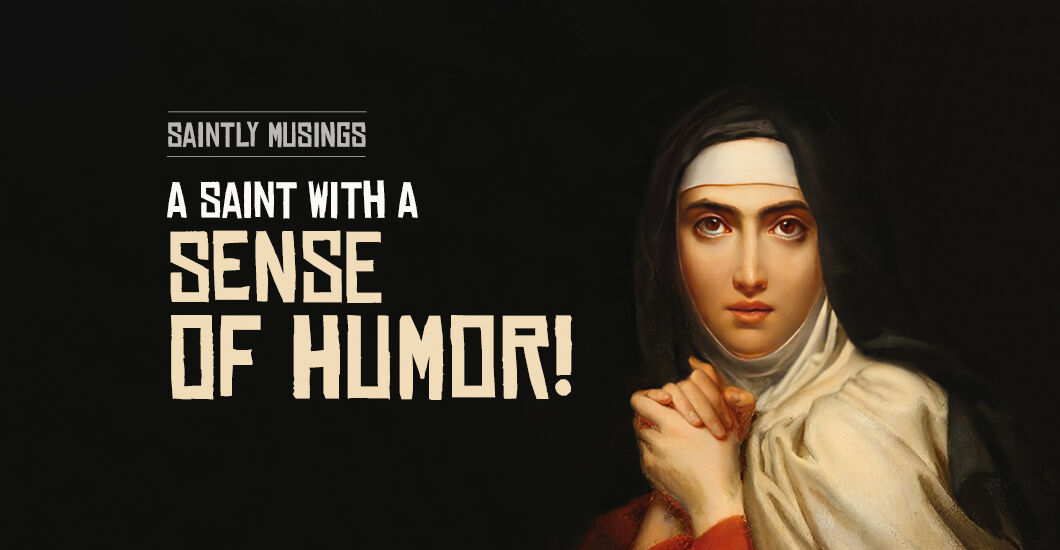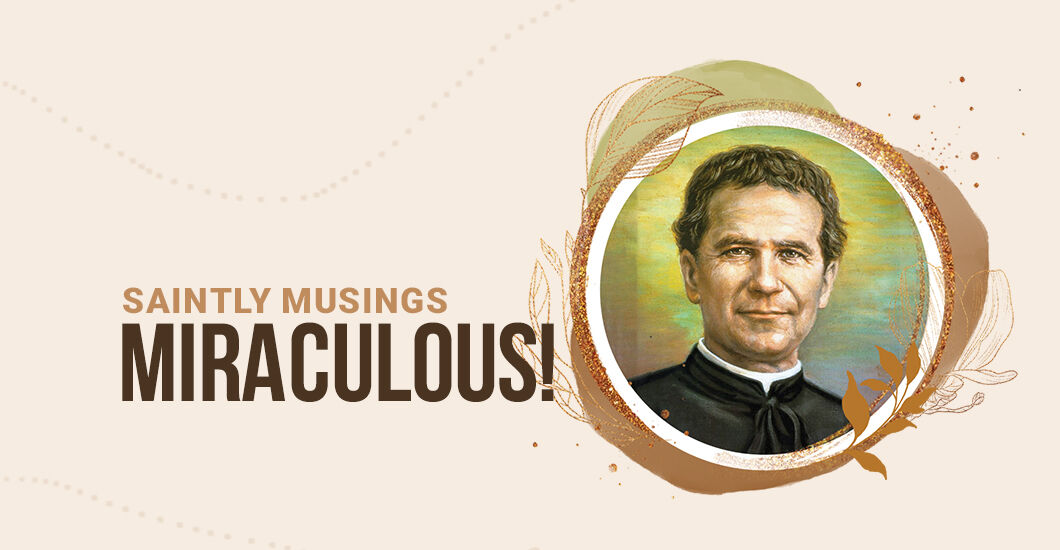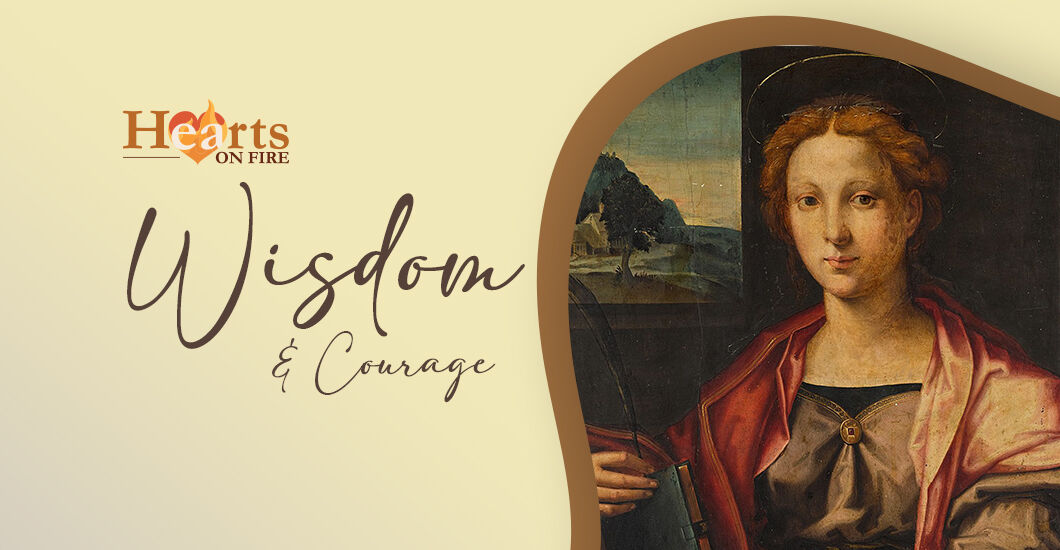Home/Evangelize/Article
Trending Articles
From Hinduism to Christian Martyrdom
Nilakandan Pillai was born into a Hindu family in South India in 1712. His parents were devout upper caste Hindus. Nilakandan’s family was closely associated with the Royal Palace, and he served the King of Travancore as a palace official in charge of accounts.
In the Battle of Colachel, fought in 1741 between Travancore and the Dutch East India Company, the Dutch naval commander Captain Eustachius De Lannoy was defeated and captured by the King. De Lannoy and his men were later pardoned and served the Travancore army. Official work brought Nilakandan and De Lannoy together and a close friendship formed between the two.
During this period, Nilakandan faced many misfortunes, and was beset with doubts and fear. De Lannoy consoled his friend by sharing his Christian faith. The story of Job from the Bible greatly comforted Nilakandan, and their conversations drew him to Christ. Nilakandan decided to receive baptism, though he knew this decision would mean sacrificing his social status and the service of the King. On 14th May 1745, at the age of 32, Nilakandan was baptized into the Catholic Church, taking the name Devasahayam, the Tamil rendering of the biblical name Lazarus.
Devasahayam experienced immense joy in living his faith and strived to be a true disciple of Jesus. He thanked God every day for the grace of conversion and eagerly shared his Catholic faith with others. He soon persuaded his wife and several of his military colleagues to confess their faith in Christ. Devasahayam had no regard for the caste system and treated the so-called “low caste” people as equals.
Soon the palace officials who opposed his newfound faith turned against him. They conspired to have him arrested. The King asked Devasahayam to renounce his Christian faith, and promised him a prominent position in his court. But despite the allurements and threats, Devasahayam stood firm in his faith, which further enraged the King. Regarded as a criminal, Devasahayam endured inhuman tortures for the next three years. He was whipped daily, and endured having chili powder rubbed onto his wounds and into his nostrils. Given only stagnant water to drink, he was paraded around the Kingdom on a buffalo with his hands tied behind him — an infamous punishment reserved for traitors and meant to discourage future conversions. Devasahayam endured the humiliation and torture with great patience and trust in God. His gentle and kind demeanor surprised the soldiers. Every morning and night he spent time in prayer, and continued preaching the Gospel to all who came to listen.
The ministers who had conspired against Devasahayam obtained permission from the King to execute him in secret. On 14 January 1752, he was then taken to a deserted mountain to stand before a firing squad. Devasahayam’s only request was for time to pray, which the soldiers granted. As he prayed, shots rang out and he died with the names of Jesus and Mary on his lips.
Devasahayam was declared a Martyr and Blessed on December 2, 2012. In February 2020, Pope Francis recognized a miracle attributed to the intercession of Devasahayam, and on May 15th, 2022, he was canonized, becoming India’s first layperson to be declared a saint.
Shalom World has made a program based on the life of this great saint, whose courageous witness and martyrdom continues to inspire the faithful of today.
To learn more about St. Devasahayam, watch the episode of ‘Glorious Lives’: https://www.shalomworld.org/episode/indias-first-layman-martyr-saint-st-lazarus-devasahayam
Shalom Tidings
Related Articles
Rani Maria Vattalil was born on 29 January 1954 to Eleeswa and Paily Vattalil in a small village called Pulluvazhy, in Kerala, India. From a young age, she was brought up in the Christian faith, having love for the poor. She attended daily Mass and led family prayers. During the final year of high school, Rani felt the Lord calling her to consecrated life and entered the Franciscan Clarist Congregation in 1972. It was Rani Maria’s ardent desire to do missionary work in North India and serve the poor, even if it cost her life. She was sent to Madhya Pradesh (a central Indian state) and served several mission areas there. Sister Rani Maria was given the responsibility of coordinating the social apostolate of the local diocese. She organized various educational programs for children and young people and worked relentlessly to empower the indigenous people. She understood how the poor, illiterate farmers were exploited and taken advantage of by their landlords. So, she educated them on their rights, helped them fight for justice, and spoke for those who were unjustly imprisoned. All this infuriated the upperclass landlords, who threatened her with dire consequences if she continued supporting the cause of the poor. But Rani Maria feared nothing and did not back down from her mission to 'love her neighbor.' A devious plan was then hatched by those who hated her. On 25th February 1995, while traveling by bus, she was mercilessly stabbed 54 times by Samundhar Singh—a man hired by the landlords. She breathed her last, repeating the Holy name of Jesus. Rani Maria worked her entire life to fight for the dignity and rights of her fellow men and bore witness to the Gospel through her social activities. Sister Rani Maria’s family, following the valiant example of their daughter, forgave her murderer wholeheartedly, even inviting him to their home! This act of mercy touched him deeply; he repented of his heinous crime and became a changed man. Sister Rani Maria was beatified by Pope Francis on 4th November 2017.
By: Shalom Tidings
MoreMartin de Porres was born in 16th-century Peru; he grew up facing the stigmas of both his mixed race and illegitimacy. After a barber-medical apprenticeship in his young years, he joined the Dominicans as a ‘lay helper’ and continued his barber work in the monastery. One day, Brother Francis Velasco Carabantes approached Martin, desiring to talk to this man whom people were already starting to believe was saintly. Martin was busy with his barber work; he absent-mindedly grabbed this novice and placed him in the barber’s chair. Brother Francis had no inclination to have his head shaved; he disliked the hairstyle that the Dominicans used. Before he could resist, Martin had finished his job, and Brother Francis was angry beyond expression. He started to shout, calling Martin all sorts of curse words. Martin was lost in prayer, and by the time he noticed that this novice was shouting, one of the rectors had seen the commotion and was scolding Brother Francis, who was severely punished and sent away. Martin, once he came to realize what had happened, went to the rector with all possible excuses. He begged forgiveness for this person who had verbally abused him, trying even to explain away the curse words used. Finally, he told the rector: “Everyone knows what a sinner I am.” The rector, who was aware of Martin’s saintly life, gave in to his request and forgave Brother Francis. Not satisfied with this, Brother Martin even sent fresh fruit, which was a rare delicacy in the monastery, to Brother Francis. How many times have we rejoiced in the ‘just’ punishments that our transgressors received? Let us pray to Saint Martin for the virtue of humility, to forgive and show the other cheek, as Jesus taught us to do.
By: Shalom Tidings
MoreOn a scorching afternoon on the streets of Calcutta, I met a boy… Prayer is an undeniable, central, and key part of every Christian’s life. However, Jesus emphasized two more things which clearly went hand in hand with prayer—fasting and almsgiving (Matthew 6:1-21). During the seasons of Lent and Advent, we are specifically called to commit more time and effort to all three ascetic practices. ‘More’ is the important word. Whatever season we are in, radical self-denial and giving are a continuous call for each baptized believer. Around eight years ago, God literally made me stop and think about it. Unexpected Meeting In 2015, I had the great privilege and blessing of fulfilling a lifelong dream to be with and serve some of the most in-need brothers and sisters worldwide in Calcutta, India, where the poor are described not only as poor but the ‘poorest of the poor.’ From the moment I landed, it was as though electricity was running through my veins. I felt such immense gratitude and love in my heart to be given this amazing opportunity to serve God with Saint Mother Teresa’s religious order, the Missionaries of Charity. The days were long but absolutely action-packed and grace-filled. Whilst I was there, I did not intend to waste a moment. After a 5 AM start to each day with an hour of prayer, followed by Holy Mass and breakfast, we set off to serve at a home for the sick, destitute, and dying adults. During the break at lunchtime, after a light meal, many of the religious brothers I was staying with took a siesta to recharge their batteries, to be ready to go again in the afternoon and on into the evening. One day, instead of having a rest in the house, I decided to go for a walk to find a local internet café, to contact my family by email. As I turned one of the corners, I encountered a young boy aged around seven or eight years old. His face expressed a mixture of frustration, anger, sadness, hurt, and tiredness. Life had already seemed to have begun to take its toll on him. He was carrying over his shoulder the biggest transparent, heavy-duty plastic bag that I had seen in my life. It contained plastic bottles and other plastic items, and it was full. My heart broke within me as we stood silently examining one another. My thoughts then went to what I could give this young boy. My heart sank, as I reached for my pocket, realizing that I only had a small amount of change with me to use for the internet. It added up to less than one pound in English money. As I gave it to him, looking him in the eye, his whole being seemed to change. He was so lifted and grateful, as his beautiful smile lit up his beautiful face. We shook hands, and he walked on. As I remained standing in that back street of Calcutta, I stood in awe as I knew that the Almighty God had just personally taught me such a powerful life-changing lesson through this encounter. Reaping Blessings I felt God had beautifully taught me in that moment that it is not the actual gift that is important but the disposition, intention, and love from the heart with which a gift is given. Saint Mother Teresa beautifully summed this up saying, “We cannot all do great things, but we can do small things with great love.” Indeed, Saint Paul said, if we give away all we have “but have not love,” we gain nothing (1 Corinthians 13:3). Jesus describes the beauty of giving, that when we “give… it will be given to you; good measure, pressed down, shaken together, running over, will be put into your lap. For the measure you give will be the measure you get back.” (Luke 6:38). Saint Paul also reminds us that “Whatever a man sows, that he will also reap” (Gal 6:7). We do not give in order to receive, but God in His infinite wisdom and goodness blesses us personally in this life and also in the next when we step out in love (John 4:34-38). As Jesus taught us, “it is more blessed to give than to receive” (Acts 20:35).
By: Sean Booth
MoreThe Chinese Boxer Rebellion in the 1900s killed nearly 32,000 Chinese Christians and 200 Western Missionaries. Among these devoted Christians who gave their life for their faith, Saint Mark Ji Tianxiang stands out because, at the time of his death, he was an opium addict who had not received the Sacraments for 30 long years. Ji was raised in a devout Christian family, and he was a respected and charitable doctor in his community. Fate be blamed, the opium he took to abate a disturbing stomach ailment took hold over him, and he was addicted to it in no time. Though he went to frequent Confession, Ji found himself in the grips of a powerful addiction that refused to succumb to any means of resistance. His parish priest and confessor eventually told him that he could not continue to repeat the same sin in Confession anymore. Confession requires a conscious resolve to repent and sin no more, and this repeated sin, in the 19th century, was not understood as an illness. He was henceforth restricted from receiving the Sacraments, but he continued visiting the Church and stayed true to the Lord’s ways. He remained sincere to his faith because He believed in a Merciful Father. Many assumed that he would be the first to deny the Lord when faced with the threat of persecution. But along with his son, grandchildren, and daughters-in-law, he persevered till the very end. In fact, Ji provided spiritual consolation to his fellow Christians as they were imprisoned and awaiting execution. Stories record that as they were dragged to prison, his grandson, shaking with fear, asked him, “Grandpa, where are we going?” He calmly and jubilantly answered: “We’re going home.” He went to his death, singing the Litany of the Blessed Virgin Mary. Pope John Paul II canonized him in the year 2000.
By: Shalom Tidings
MoreEver heard of a robber who turned into a Saint? Moses the Black was a leader of a band of thieves who attacked, robbed, and murdered travelers in the Egyptian desert. The very mention of his name spread terror in people’s hearts. On one occasion, Moses had to hide in a monastery and was so amazed at the way he was treated by the Monks that he converted and became a monk! But the story doesn’t end there. Once, four of the robbers of his former band descended upon the cell of Moses. He had lost none of his great physical strength, so he tied them all up. Throwing them over his shoulder, he brought them to the monastery, where he asked the Elders what to do with them. The Elders ordered that they be set free. The robbers, learning that they had chanced upon their former ringleader and that he had dealt kindly with them, followed his example: they repented and became monks. Later, when the rest of the band of robbers heard about the repentance of Moses, they also gave up their thievery and became fervent monks. After many years of monastic struggles, Moses was ordained deacon. For another fifteen years, he continued his monastic labors. About 75 disciples gathered around the saintly Elder, who had been granted the gifts of wisdom, foresight, and power over demons by the Lord. Once, a certain brother committed an offense in Scete, the camp of the monks. When a congregation was assembled to decide on this matter, they sent for Abba Moses, but he refused to come. Then they sent the priest of the church to him, imploring, “Come, for all the people are expecting you,” and finally, he responded to their pleas. Taking a basket with a hole in it, he filled it with sand and carried it upon his shoulders. Those who went out to meet him asked, “What does this mean, O Father?” And he replied, “The sands are my sins, which are running down behind me, and I cannot see them. Yet, I have come here today to judge shortcomings that are not mine.” When they heard this, they set that brother free and said nothing further to him.
By: Shalom Tidings
MoreAt the age of 20, Anthony lost his parents and was left with a large inheritance and the responsibility of caring for his sister. About the same time, Anthony happened to hear a reading from the Gospel of Matthew, where Jesus tells a rich young man, "If you want to be perfect, go and sell everything you have and give the money to the poor." Anthony believed he was that rich young man. Shortly after, he gave away most of his property, sold almost everything else, and kept only what he needed to care for himself and his sister. But that’s not exactly what the Lord had commanded! Not long afterward, Anthony was at Mass once again and heard the Gospel passage, “Do not worry about tomorrow; tomorrow will take care of itself” (Matthew 6:34). Again, he knew Jesus was speaking directly to him, so he gave away even the little he had saved, entrusted his sister to the care of some holy women, and entered the desert to live a life of poverty, solitude, prayer, and mortification. In that harsh desert landscape, the devil attacked him in countless ways saying “Think about all the good you could have done with that money you gave away!” Firm in prayer and mortification, Anthony fought off the devil and his manifestations. Many were attracted to his wisdom, and these he encouraged to seek self-denial and the hermetic life. No wonder after his death he became Saint Anthony the Great or Saint Anthony of the Desert, the father of Christian Monasticism. Once a brother renounced the world and gave his goods to the poor, but he kept back a little for his personal expenses. He went to see Abba Antony. When he told him this, the old man said to him, "If you want to be a monk, go into the village, buy some meat, cover your naked body with it and come here like that." The brother did so, and the dogs and birds tore at his flesh. When he came back the old man asked him whether he had followed his advice. He showed him his wounded body, and Saint Antony said, "Those who renounce the world but want to keep something for themselves are torn in this way by the demons who make war on them."
By: Shalom Tidings
MoreFew Saints of the Catholic Church have captured the popular imagination like Joan of Arc. Her story is depicted in paintings, sculptures, and numerous films. Born into a peasant family in 1412, Joan grew up illiterate, but acquired a profound love for the Church and a deep faith in God from her mother. Because she loved prayer and the sacraments, her neighbors said, “She was so good that all the village loved her.” She cared for the sick and homeless, often even giving them her own bed. By the age of thirteen, Joan began to hear the voices of Michael the Archangel, Saint Margaret of Antioch, and Saint Catherine of Alexandria. They told her she was to liberate France and ensure the French heir to the throne was installed as France’s rightful king. She won his trust by telling him details of his past only someone with divine knowledge could know. At the time, France was dominated and ruled by England. Convinced that her “voices” came from God, Joan heroically and faithfully obeyed their instruction, despite obstacles and suffering. Prayer and contemplation remained primary in her life even as she led battles, during which she never raised the sword against an enemy Though two years earlier a commission had “declared her to be of irreproachable life, a good Christian, possessed of the virtues of humility, honesty and simplicity”, Joan was accused of witchcraft and heresy after the English captured her, receiving no support from the very King she put on the throne. At her trial, Joan manifested her deep faith and wisdom, and despite being wrongly condemned, she never lost her faith in God or the Church. When she was burned at the stake, she proclaimed the name of Jesus while holding a crucifix to her heart, causing an observer to say, “We have burned a saint.” Her death increased her fame and popularity. Twenty years later, a new trial declared her innocent of all her alleged crimes. After her reputation grew over the centuries to epic proportions, Joan was beatified in 1910 by Pope Pius X and canonized eleven years later by Pope Benedict XV. She is now the patron Saint of France and one of the Church’s most beloved Saints. Joan’s obedience to God ensured France kept the Catholic faith during the Protestant Reformation while England abandoned it. France remained a solid center of Catholicism from which it would spread to northern Europe.
By: Shalom Tidings
MoreThe river had swelled so high that water covered everything and all sense of where the road or footpath might be was purely a guess. With water everywhere, it seemed foolish to advance, especially in a carriage, for if anyone strayed ever so little off the road, they would perish without a doubt. As her companions panicked, Sister Teresa encouraged them, “As we are engaged in God’s work, how could we die in a better cause?” She then led the way on foot to the convent through the fierce storm. Suddenly she slipped down an embankment and fell squarely into the mud. Instead of complaining or cursing, the irrepressible nun, looked to the sky and quipped, “If this is how you treat your friends, no wonder you don’t have many!” The sixteenth-century Saint and Doctor of the Church, Teresa of Avila, didn’t take herself or this world too seriously and brushed off the little hardships of life with a sense of humor. Her ability to humbly recognize her own faults and need for grace was also tinged with her refreshing humor. In her autobiography, Teresa writes, “Having virtuous and God-fearing parents would have been enough for me to be good if I were not so wicked.” Saint Teresa was also mindful of false piety and once said, “From silly devotions and sour-faced saints, good Lord, deliver us!” A healthy and good sense of humor will keep our head straight and enable us to see the world’s true beauty. Did God say that we need to be “sour-faced” to be holy? So, if you want to become a saint, lighten up, share the joy of the Lord and laugh with your friends like Jesus did.
By: Shalom Tidings
MoreMaria Stardero, a 12-year-old girl, was led by her aunt into the church where dozens of boys were standing about or kneeling in prayer as they waited for Don Bosco to arrive for confessions. As she made her way to a pew, some of the boys noticed that the young girl’s eyes had no corneas and resembled white marbles. When Don Bosco arrived, he asked the girl about her condition. She had not been born blind, she told him, but because of eye disease she had completely lost her sight two years earlier. When he inquired about medical treatment, her aunt began to sob. They had tried everything, but doctors had only one thing to say: “It is incurable!” “Can you tell whether things are big or small?” Don Bosco asked the child. “I can’t see anything.” He led her to a window to see if she could perceive light, but she couldn’t. “Would you like to see?” Don Bosco asked. “Oh, yes! It’s the only thing I want,” said the girl, breaking down in tears. “Will you use your eyes for the good of your soul and not to offend God?” “I promise I will, with all my heart!” “Good,” said Don Bosco. “You will regain your sight.” After recourse to Mary, Help of Christians, Don Bosco recited the Hail Mary and blessed the girl. Then holding a medal of Mary Help of Christians before the girl’s eyes he asked, “For the glory of God and the Blessed Virgin, tell me what I’m holding in my hand.” “She can’t . . .” the elderly aunt began, but Don Bosco paid no heed. After a few seconds, the child shouted, “I see!” Immediately she described the medal in great detail. But when she stretched out her hand to receive it, it rolled into a dark corner. The aunt moved to retrieve it, but Don Bosco motioned her back. “Let her find it to see if the Blessed Virgin has thoroughly restored her sight,” he insisted. Immediately, the girl walked to the dark corner and bent down to retrieve the tiny object. As the many witnesses looked on, awed and profoundly moved, Maria, thanked Don Bosco profusely and with sobs of great joy. Entrust everything to Jesus in the Blessed Sacrament and to Mary, Help of Christians and you will see what miracles are! Saint John Bosco
By: Shalom Tidings
MoreVenerated as one of the fourteen Holy Helpers (intercessors invoked especially against diseases) Saint Catherine of Alexandria is a virgin martyr of the late third century and early fourth centuries. Though there are no primary sources that attest to her life, there are many traditions about her kept alive over the centuries, including the fact that Joan of Arc claimed hers as one of the voices that spoke to her. Born around 287 in Alexandria, Egypt, a cultural and educational center of the ancient world, she was of the noble class and a very gifted student. She embraced Christianity at age 14 after seeing a vision of Jesus and His blessed mother. A precocious young woman, she didn’t hesitate at the age of 18 to challenge the emperor Maxentius when he began to cruelly persecute the Christian community. The emperor was so impressed by her wisdom that, rather than execute Catherine, he ordered her to debate his best philosophers, whom she easily bested. In fact, the philosophers were so taken by her wisdom, that they and some 200 soldiers embraced the faith. Sadly, all were immediately martyred. Frustrated by Catherine’s amazing resilience, the emperor ordered that she be jailed and tortured. But even her brutal scourging did not cause Catherine to give up her faith. So, the emperor tried a novel approach: he offered to marry her and make her an empress. Already wedded to Christ and having dedicated her virginity to him, Catherine refused the emperor. Enraged, the emperor ordered that she be executed on a spiked wheel, an especially brutal means of torture. But when Catherine touched the wheel, it miraculously shattered. Finally, the emperor commanded she be beheaded. Especially popular during the medieval period, devotion to Catherine spread during the crusades and she has remained popular in both the Roman Catholic and Orthodox churches. Celebrated in much renaissance art, Catherine is the patroness of students and teachers, librarians, and lawyers. Her feast is celebrated on November 25. May her courage and her wisdom in accepting death rather than abandoning her faith in Christ inspire us and give us hope. Saint Catherine of Alexandria, pray for us.
By: Shalom Tidings
MoreLatest Articles
When she lost her mobility, eyesight, listening, voice, and even the sense of touch, what prompted this young girl to describe her life as ‘sweet?’ Little Benedetta, at age seven, wrote in her diary: “The universe is enchanting! It is great to be alive.” This intelligent and happy lass, unfortunately, contracted polio in her childhood, which left her body crippled, but nothing could cripple her spirit! Hard Times on Roll Benedetta Bianchi Porro was born in Forlì, Italy, in 1936. As a teenager, she began to go deaf, but despite this, she entered medical school, where she excelled, taking oral exams by reading the lips of her professors. She had an ardent desire to become a missionary doctor, but after five years of medical training and just one year short of completing her degree, she was forced to end her studies due to increasing illness. Benedetta diagnosed herself with neurofibromatosis. There are several iterations of this cruel disease, and in Benedetta’s case, it attacked the nerve centers of her body, forming tumors on them and gradually causing total deafness, blindness, and later, paralysis. As Benedetta’s world shrank, she demonstrated extraordinary courage and holiness and was visited by many who sought her counsel and intercession. She was able to communicate when her mother would sign the Italian alphabet into her left palm, one of the few areas of her body that remained functional. Her mother would sign letters, messages, and Scripture painstakingly into Benedetta’s palm, and Benedetta would reply verbally despite her voice having been weakened to a whisper. “They’d come and go in groups of ten and fifteen,” said Maria Grazia, one of Benedetta’s closest confidantes. “With her mother as interpreter, she was able to communicate with each one. It seemed as though she could read our innermost souls with extreme clarity, even though she couldn’t hear or see us. I will always remember her with her hand extended ready to receive the Word of God and her brothers and sisters.” (Beyond Silence, Life Diary Letters of Benedetta Bianchi Porro) It’s not that Benedetta never experienced agony or even anger at this disease that was robbing her of the ability to become a medical doctor, but in accepting it, she became a doctor of another sort, a kind of surgeon to the soul. She was, indeed, a spiritual doctor. In the end, Benedetta was no less a healer than she ever desired to be. Her life had shrunken all the way down to the palm of her hand, it was no bigger than a Communion host—and yet, just like a Blessed Communion Host, it had become more powerful than she would have ever imagined. It is impossible to miss the correlation between Benedetta’s life and Jesus in the Blessed Sacrament who is hidden and small too, silent and even weak, but an ever-present friend to us. Towards the end of her life, she wrote to a young man who suffered similarly: “Because I'm deaf and blind, things have become complicated for me … Nevertheless, in my Calvary, I do not lack hope. I know that at the end of the road, Jesus is waiting for me. First in my armchair, and now in my bed where I now stay, I have found wisdom greater than that of men—I have discovered that God exists, that He is love, faithfulness, joy, certitude, to the end of the ages … My days are not easy. They are hard. But sweet because Jesus is with me, with my sufferings, and He gives me His sweetness in my loneliness and light in the darkness. He smiles at me and accepts my collaboration.” (Venerable Benedetta Biancho Porro, by Dom Antoine Marie, OSB) A Compelling Reminder Benedetta passed away on January 23, 1964. She was 27 years old. She was venerated on December 23, 1993, by Pope John Paul II and beatified on September 14, 2019, by Pope Francis. One of the great gifts that the Saints bring to the Church is that they give us a clear picture of what virtue looks like, even in incredibly difficult circumstances. We need to ‘see ourselves’ in the lives of the Saints in order to be strengthened for our own. Blessed Benedetta is truly a model of sanctity for our times. She is a compelling reminder that even a life filled with serious limitations can be a powerful catalyst for hope and conversion in the world and that the Lord knows and fulfills the deepest desire of every heart, often in surprising ways. A Prayer to Blessed Benedetta Blessed Benedetta, your world became as small as a communion wafer. You were immobilized, deaf, and blind, and yet you were a powerful witness to the love of God and the Blessed Mother. Jesus in the Blessed Sacrament is hidden and small too, silent, immobilized, and even weak—and still all-powerful, ever present to us. Please pray for me, Benedetta, that I will collaborate, as you did, with Jesus, in whatever way He wishes to use me. May I be granted the grace to allow the Almighty Father to speak through my littleness and loneliness, too, for the glory of God and the salvation of souls. Amen.
By: Liz Kelly Stanchina
MoreWe are all looking for ‘immersive’ experiences, but what of the ultimate experience we have been freely given? During the Worldwide Developers Conference in California, Apple introduced its Vision Pro headset, a head-mounted device resembling oversized swimming goggles. Essentially, it functions as a comprehensive computer, smartphone, and home theatre, incorporating virtual reality, augmented reality, and mixed reality technologies. Many consider this product to be the future of smartphones. With the Vision Pro headset, users can control their visual experience, actions, and even thoughts using voice commands and hand and finger gestures in the air. My brain popped. Imagine the possibilities! But could the use of this headset raise concerns about increased social isolation and a decline in shared experiences? For instance, if it replaces the traditional cinema room with large televisions where families not only watch something together but also bond with each other, wouldn’t this technology endanger core human connections? But what if there is an immersive experience that does not destroy the experience of communion? Getting Connected Have you ever considered that when we receive the Blessed Sacrament, God is giving us the most amazing immersive experience ever? By creating us in His image and likeness, God gifted us with His desire for shared experience and union. In its fullness, this is a desire for union with God Himself. As the psalmist writes: “As a deer longs for flowing streams, so my soul longs for you, O God. My soul thirsts for God.” (Psalm 42: 1-2) However, our contemporary culture has perverted this longing into an obsession with sex, power, money, and belongings. Sin has corrupted our desire for holistic union. Jesus expresses His longing for communion with us when He tells the apostles: “I have eagerly desired to eat this Passover with you…” (Luke 22:15). He desired to be in communion with us so much, that He commanded us to eat and drink Him–to be so united with Him that our bodies are commingled. The Eucharist is not a one-man show. It is a shared experience of a community around the table sharing one cup and one bread. Participation is its core. Richard Hooker, a theologian writes that 'participation' refers to the reciprocal and intimate connection between Christ and believers where Christ holds us, and we hold Christ. In this bond, there is a sense of sharing one another through a unique relationship, shared interests, and a profound union. Christ is truly present in the bread and wine, and it is radical faith. If we believe Christ is present universally, why would it be hard to believe that he is truly present in the consecrated host and wine? This presence is designed for intimate communion by eating and drinking. As we leave the church, we carry His presence into the world. Then, as we pour out ourselves in service to others, we draw them into His presence.
By: Father Bony Abraham
MoreLoneliness is the new normal worldwide, but not for this family! Read on for this incredible tip on staying connected always. I recently became an empty nester. All five of my children live hours apart from one another, which makes family gatherings few and far between. This is one of the bittersweet consequences of successfully launching your children; they can fly pretty far sometimes. Last Christmas, our whole family had the happy occasion of visiting with each other. At the end of those three joyful days, when it was time for goodbyes, I overheard one sibling say to another: “I’ll see you in the Eucharist.” This is the way. This is how we stay close to one another. We cling to the Eucharist. And Jesus binds us together. We certainly miss one another and wish we had more time together. But God has called us to work in different pastures and to be content with the time we’ve been given. So, in between visits and phone calls, we go to Mass and continue to stay connected. Feeling Alone? Attending the Most Holy Sacrifice of the Mass allows us to enter into a reality that’s not bound by space and time. It’s the stepping out of this world and into a sacred space where Heaven touches Earth in a real way, and we are united with the entire family of God, those worshiping both here on Earth and in Heaven. By partaking in Holy Communion, we find that we indeed are not alone. One of Jesus’ last words to His disciples was: “I am with you always, to the end of the age.” (Matthew 28:20) The Eucharist is the immense gift of His continual Presence with us. Naturally, we miss loved ones who are no longer with us; sometimes, the ache can be quite fierce. It is in those moments that we must cling to the Eucharist. On particularly lonesome days, I make an extra effort to get to Mass a little early and linger a little longer afterward. I intercede for each of my loved ones and receive comfort knowing I am not alone and that I am close to Jesus’ Heart. I pray that each of my loved one’s hearts are also close to Jesus’ Heart, so we can also be together. Jesus promised: “And I, when I am lifted up from the earth, will draw all people to Myself.” (John 12:32) Incredibly Close One of my favorite lines during the Eucharistic Prayer is this: “Humbly we pray that partaking of the body and blood of Christ, we may be gathered into one by the Holy Spirit.” God gathers what once was scattered and draws us into the one body of Christ. The Holy Spirit at Mass has been tasked in a particular way with uniting us. We absolutely need God’s help to be in true communion with others. Have you ever been in the same room with someone, but yet it felt like you were a million miles away? The opposite of that can also be true. Even if we are miles apart, we can feel incredibly close to others. Ultimate Reality Last year, I felt particularly close to my grandmother at her funeral Mass. It was very comforting, for I felt like she was right there with us, especially during the Eucharistic prayer and Holy Communion. My grandmother had a strong devotion to the Eucharist and strove to attend daily Mass for as long as she physically could. I was so grateful for that time of intimacy with her and will always treasure that. This reminds me of another portion of the Eucharistic prayer: “Remember also our brothers and sisters who have fallen asleep in the hope of the resurrection and all who have died in Your mercy: welcome them into the light of Your face. Have mercy on us all, we pray, that with the Blessed Virgin Mary, Mother of God, with Blessed Joseph, Her Spouse, with the Blessed Apostles, and all the Saints who have pleased You throughout the ages, we may merit to be co-heirs to eternal life, and may praise and glorify You through Your Son, Jesus Christ.” While at Mass or Eucharistic Adoration, we are in the Real Presence of our Lord and Savior Jesus Christ. We are also joined by the Saints and Angels in Heaven. One day we will see this reality for ourselves. For now, we believe with the eyes of faith. Let us take courage whenever we feel lonely or are missing a loved one. Jesus’ Loving and Merciful Heart is constantly beating for us and yearning for us to spend time with Him in the Eucharist. This is where we find our peace. This is where our hearts are fed. Like Saint John, let us rest peacefully on the loving breast of Jesus and pray that many others will find their way to His Sacred Eucharistic Heart. Then, we will be truly together.
By: Denise Jasek
MoreQ - My many Christian friends celebrate ‘Communion’ every Sunday, and they argue that the Eucharistic presence of Christ is only spiritual. I believe Christ is present in the Eucharist, but is there any way to explain it to them? A – It is indeed an incredible claim to say that at every Mass, a small piece of bread and a small chalice of wine become the very flesh and blood of God Himself. It is not a sign or a symbol, but truly the body, blood, soul, and divinity of Jesus. How can we make this claim? There are three reasons why we believe this. First, Jesus Christ said so Himself. In John’s Gospel, Chapter 6, Jesus says: “Amen, amen, I say to you, unless you eat the flesh of the Son of Man and drink His blood, you do not have life within you. Whoever eats My flesh and drinks My blood has eternal life, and I will raise him on the last day. For My flesh is true food, and My blood is true drink. Whoever eats My flesh and drinks My blood remains in Me and I in him.” Whenever Jesus says, “Amen, Amen, I say to you…”, this is a sign that what He is about to say is completely literal. Further, Jesus uses the Greek word trogon which is translated ‘to eat’—but really means ‘to chew, gnaw, or rip with one’s teeth.’ It’s a very graphic verb which can only be used literally. Also, consider the reaction of His hearers; they walked away! It says in John 6: “as a result of this [teaching], many of His disciples returned to their former way of life and no longer accompanied Him.” Does Jesus chase them down, tell them that they misunderstood Him? No, He allows them to leave—because He was serious about this teaching that the Eucharist is truly His flesh and blood! Second, we believe because the Church has always taught it from its earliest days. I once asked a priest why there was no mention of the Eucharist in the Creed which we profess every Sunday—and he replied that it was because no one debated His Real Presence, so it wasn’t necessary to officially define it! Many of the Church Fathers wrote about the Eucharist—for example, Saint Justin Martyr, writing around the year 150 AD, penned these words: “For not as common bread and common drink do we receive these; but we have been taught that the food which is blessed by the prayer of His word, and from which our blood and flesh are nourished, is the flesh and blood of that Jesus who was made flesh.” Every Church Father is in agreement—the Eucharist is truly His flesh and blood. Finally, our faith is strengthened through the many Eucharistic miracles in the history of the Church—over 150 officially documented miracles. Perhaps the most famous occurred in Lanciano, Italy in the 800s, where a priest who doubted Christ’s presence was shocked to find that the Host became visible flesh, while the wine became visible as blood. Later scientific tests discovered that the Host was heart flesh from a human male, type AB blood (very common among Jewish men). The heart flesh had been badly beaten and bruised. The blood had congealed into five clumps, symbolizing the five wounds of Christ, and miraculously the weight of one of the clumps is equal to the weight of all five taken together! Scientists cannot explain how this flesh and blood has lasted for twelve hundred years, which is an inexplicable miracle in itself. But how can we explain how this happens? We make a distinction between accidents (what something looks like, smells like, tastes like, etc) and substance (what something actually is). When I was a young child, I was at my friend’s house, and when she left the room, I saw a cookie sitting on a plate. It looked delectable, smelled like vanilla, and so I took a bite…and it was soap! I was so disappointed, but it taught me that my senses could not always decipher what something actually is. In the Eucharist, the substance of bread and wine change into the substance of Christ’s body and blood (a process known as transubstantiation), while the accidents (the taste, smell, look) remain the same. It does indeed take faith to recognize that Jesus is truly present, since it cannot be perceived by our senses, nor is it something we can deduce with our logic and reason. But if Jesus Christ is God and He cannot lie, I am willing to believe that He is not a sign or symbol, but truly present in the Most Blessed Sacrament!
By: Father Joseph Gill
More